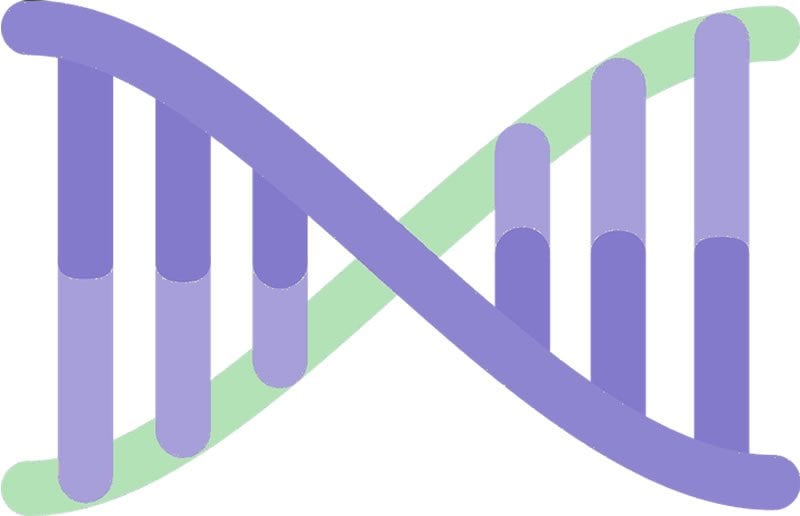Summary: A metabolite has been identified that can predict whether people with PTEN mutations will develop cancer or ASD.
Source: Cleveland Clinic
In a new study published in American Journal of Human Genetics, a team of researchers led by Charis Eng, M.D., Ph.D., Chair of Cleveland Clinic’s Genomic Medicine Institute, identified a metabolite that may predict whether individuals with PTEN mutations will develop cancer or autism spectrum disorder (ASD).
Germline mutations of the tumor suppressor gene PTEN are associated with a spectrum of rare genetic disorders that increase the risk of certain cancers, cognitive and behavioral deficits, benign growths and tumors (i.e., hamartomas), and macrocephaly. These disorders are referred to collectively as PTEN hamartoma tumor syndrome (PHTS), but clinical manifestations vary greatly among patients and often are difficult to anticipate.
For example, subsets of Cowden syndrome (CS) and Bannayan-Riley-Ruvalcaba syndrome (BRRS), two well-defined disorders on the PHTS spectrum, are characterized by either a high risk of certain cancers or ASD. There are functional and structural differences between PTEN mutations associated with ASD and those associated with cancer. However, a biomarker that could proactively determine if a patient with CS/BRRS will develop cancer or ASD has not yet been identified.
Previous studies have established metabolic dysregulation as one of the hallmarks of cancer. Specifically, germline variants in the SDHx genes cause an accumulation of the metabolite succinate, which has been linked to tumorigenesis. Some patients with PTEN mutations have been found to have succinate accumulation despite the lack of SDHx mutations, suggesting that variations in metabolite levels may indicate susceptibility to cancer versus ASD.
To investigate this further, Dr. Eng’s team analyzed the metabolite levels of 511 patients with CS, BRRS, or Cowden-like syndrome compared to controls. The results suggest that certain metabolites are associated with specific mutations and/or clinical features.

In particular, they discovered that decreased levels of fumarate, a metabolite formed from succinate, was more strongly associated with ASD or other developmental disorders compared to cancer in individuals with PTEN mutations. These findings indicate that certain metabolites, such as fumarate, may serve as predictive biomarkers that could distinguish patients who will develop neurodevelopmental disorders from those who will develop cancer.
“By identifying a way to differentiate those with germline PTEN mutations who develop cancer and those who develop autism, this provides clinicians with a new tool to better tailor treatments to individual patients,” says Dr. Eng.
Dr. Eng is also the inaugural Director of the Center for Personalized Genetic Healthcare and Medical Director of the PTEN Multidisciplinary Clinic. Notably, she was the first to discover a link between mutations in PTEN and Cowden and other syndromes, and her research has formed the basis of national practice guidelines for those with PHTS and Cowden syndrome. Dr. Eng holds the Sondra J. and Stephen R. Hardis Endowed Chair in Cancer Genomic Medicine at Cleveland Clinic.
Funding: This study was supported in part by the National Cancer Institute, Ambrose Monell Foundation, American Cancer Society, Breast Cancer Research Foundation, Doris Duke Distinguished Clinical Scientist Award, the National Institutes of Health, and the clinical research infrastructure enabled by the Zacconi Program of PTEN Research Excellence.
Source:
Cleveland Clinic
Media Contacts:
Alicia Reale – Cleveland Clinic
Image Source:
The image is in the public domain.
Original Research: Open access
“Distinct Alterations in Tricarboxylic Acid Cycle Metabolites Associate with Cancer and Autism Phenotypes in Cowden Syndrome and Bannayan-Riley-Ruvalcaba Syndrome”. Charis Eng et al.
American Journal of Human Genetics doi:10.1016/j.ajhg.2019.09.004.
Abstract
Distinct Alterations in Tricarboxylic Acid Cycle Metabolites Associate with Cancer and Autism Phenotypes in Cowden Syndrome and Bannayan-Riley-Ruvalcaba Syndrome
Germline heterozygous PTEN mutations cause subsets of Cowden syndrome (CS) and Bannayan-Riley-Ruvalcaba syndrome (BRRS); these subsets are characterized by high risks of breast, thyroid, and other cancers and, in one subset, autism spectrum disorder (ASD). Up to 10% of individuals with PTENMUT CS, CS-like syndrome, or BRRS have germline SDHx (succinate dehydrogenase, mitochondrial complex II) variants, which modify cancer risk. PTEN contributes to metabolic reprogramming; this is a well-established role in a cancer context. Relatedly, SDH sits at the crossroad of the electron transport chain and tricarboxylic acid (TCA) cycle, two central bioenergetic pathways. Intriguingly, PTENMUT and SDHMUT individuals have reduced SDH catalytic activity, resulting in succinate accumulation; this indicates a common genotype-independent biochemical alteration. Here, we conducted a TCA targeted metabolomics study on 511 individuals with CS, CS-like syndrome, or BRRS with various genotypes (PTEN or SDHx, mutant or wild type [WT]) and phenotypes (cancer or ASD) and a series of 187 population controls. We found consistent TCA cycle metabolite alterations in cases with various genotypes and phenotypes compared to controls, and we found unique correlations of individual metabolites with particular genotype-phenotype combinations. Notably, increased isocitrate (p = 1.2 × 10−3), but reduced citrate (p = 5.0 × 10−4), were found to be associated with breast cancer in individuals with PTENMUT/SDHxWT. Conversely, increased lactate was associated with neurodevelopmental disorders regardless of genotype (p = 9.7 × 10−3); this finding was replicated in an independent validation series (n = 171) enriched for idiopathic ASD (PTENWT, p = 5.6 × 10−4). Importantly, we identified fumarate (p = 1.9 × 10−2) as a pertinent metabolite, distinguishing individuals who develop ASD from those who develop cancer. Our observations suggest that TCA cycle metabolite alterations are germane to the pathobiology of PTEN-related CS and BRRS, as well as genotype-independent ASD, with implications for potential biomarker and/or therapeutic value.






